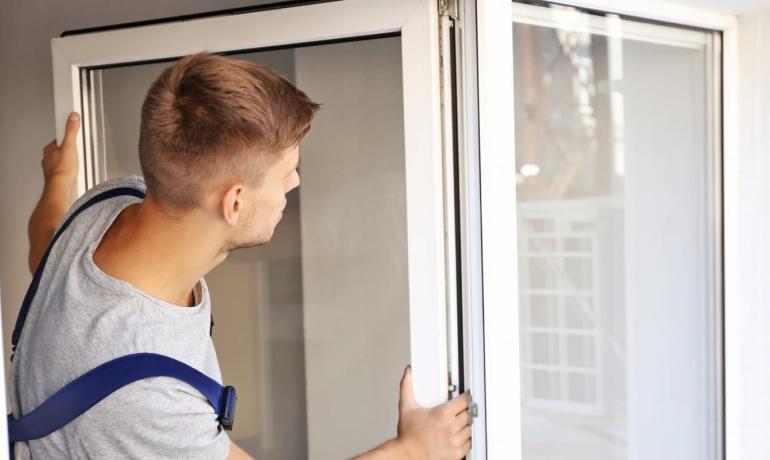
Reducing Electric Bills and Furniture fading With UV IR Blocking Window Film
Solar control films, also known as window tint films, offer a wide range of benefits for office windows in commercial buildings and various other applications. These films provide effective solutions for improving energy efficiency, protecting furniture from fading, reducing glare, and preserving natural light.
By installing solar film window tint, homeowners can enjoy a cooler interior while simultaneously protecting their furniture, flooring, and artwork from the damaging effects of prolonged sun exposure. Additionally, solar film for home windows provides an added layer of privacy, allowing occupants to enjoy their personal space without compromising natural light and views of the outdoors.
They are a popular choice for enhancing both functionality and aesthetics in spaces, catering to diverse needs. Whether you are looking for reliable window tinting near you, require commercial window tinting solutions, seek privacy window film for added seclusion, need residential window tinting services, or intend to optimize sunlight control with solar window film, solar control films are the perfect solution.
Energy Efficiency: UV and IR-blocking window films help improve energy efficiency by reducing heat transfer through windows. Here's how they achieve this:
a. UV Radiation Blocking: UV-blocking films are designed to block a significant portion of UV radiation. UV rays carry a small portion of the solar energy but contribute significantly to heat gain. The film blocks UV radiation, reducing heat and lessening the strain on your cooling system, minimizing reliance on air conditioning. This can result in reduced energy consumption and lower electric bills.
b. IR Radiation Blocking: Infrared radiation, especially IR-A and IR-B, carries most solar energy and contributes to heat gain. IR-blocking films are designed to reduce the transmission of IR radiation, preventing excessive heat buildup in your space. These films reduce heat transfer, maintaining a comfortable indoor temperature and reducing the need for cooling, resulting in energy savings.
- Furniture Fading Protection: UV and IR blocking films preserve furniture appearance and longevity. Here's how they provide furniture fading protection:
- a. UV Radiation Blocking: UV radiation is a primary cause of furniture fading and discoloration. UV-blocking window films greatly reduce UV ray transmission, minimizing fading and degradation of materials in your space. By protecting your furnishings from UV damage, the films help maintain their original colors and prolong their lifespan.
- b. IR Radiation Reduction: Infrared radiation can also contribute to furniture fading, albeit to a lesser extent compared to UV radiation. UV and IR-blocking films protect furniture and interior finishes by reducing heat-induced fading and deterioration by blocking IR radiation.
When selecting UV and IR-blocking window films for energy efficiency and furniture fading protection, consider the following factors:
- UV and IR Rejection: Look for films with high UV and IR rejection capabilities. These specifications should be provided by the film manufacturer or supplier. Opt for films that offer a high percentage of UV and IR radiation blocking.
- Visible Light Transmission: Consider the desired level of visible light transmission (VLT) for your space. Film tint or reflectivity affects visible light transmission in UV and IR blockers. Choose a film that strikes the right balance between energy efficiency and maintaining natural light levels.
- Professional Installation: Proper installation is essential to ensure the film's performance and longevity. Consult with a professional window film installer to ensure correct application and adherence to manufacturer guidelines.
Preserve Heat
Solar films can contribute to preserving heat within a space by reducing heat loss through windows. Here are the main ways window solar films help in heat preservation:
- Solar films provide thermal insulation by creating an extra barrier between indoor and outdoor spaces. These films can help reduce heat transfer through windows by acting as a thermal barrier, limiting the conduction of heat. This helps to maintain a more stable indoor temperature and reduces heat loss during colder periods.
- Heat Retention: Low-E coated solar films reflect a significant amount of radiant heat back into the room. Low-E coatings reflect heat energy back into the room, reducing heat loss through windows. This enhances heat retention and can reduce the reliance on heating systems to maintain a comfortable temperature.
- Solar Heat Gain Control: Solar films block or reflect incoming solar radiation to control heat gain, contributing to heat preservation. Solar films keep interiors cooler by reducing solar heat, reducing reliance on air conditioning. This improves heating system efficiency in colder periods, requiring less heat to maintain the desired temperature.
- Energy Efficiency: Solar films that contribute to heat preservation can lead to improved energy efficiency. By reducing heat loss through windows, less energy is needed to maintain the desired temperature, resulting in potential energy savings. This can help lower heating costs and reduce the overall energy consumption of a building.
When considering solar control window films for heat preservation, it's essential to evaluate their properties and characteristics. Look for films with low-E coatings or specific insulating properties that are designed to enhance heat retention and thermal insulation. Get advice from a window professional to find the ideal solar film based on climate, window orientation, and desired heat preservation.
Glare Reduction
Glare reduction films offer several benefits in environments where excessive brightness or contrast can cause discomfort and visual strain. Here are the main advantages of using glare-reduction films:
- Improved Visual Comfort: Glare reduction films improve visual comfort by reducing brightness and minimizing light-dark contrast. This is especially helpful in bright spaces or areas prone to glare from direct sunlight. By reducing glare, these films create a more comfortable viewing environment for occupants, reducing eye strain and fatigue.
- Enhanced Productivity and Performance: Glare can hinder productivity and affect performance in various settings such as offices, schools, and commercial spaces. Glare reduction films enhance visual comfort, enabling focused tasks without distraction or visual impairment from excessive brightness. By providing a glare-free workspace, these films can contribute to increased productivity, better concentration, and improved overall performance.
- Clearer Display Visibility: Glare can interfere with the visibility of displays and screens, including computer monitors, televisions, and electronic devices. Glare reduction films help minimize reflections on these surfaces, improving screen clarity and legibility. This is especially advantageous in settings where visual information is critical, such as control rooms, command centers, and multimedia environments. By reducing glare, these films improve screen readability and visibility, ensuring easy viewing and understanding of important information.
- Energy Efficiency: Glare reduction films can contribute to energy efficiency by allowing better control of interior lighting. By reducing glare, these films enable occupants to rely less on artificial lighting, especially in spaces with abundant natural light. Maximizing natural light while minimizing glare reduces energy consumption for lighting, leading to potential energy savings.
- Aesthetics and Design Flexibility: Glare reduction films offer customizable shades and designs, improving the overall look of a space. They can be applied to different types of windows, such as those in offices, homes, and vehicles, without obstructing the view. Glare reduction films offer a budget-friendly option to reduce glare without compromising the clean and unobstructed appearance of your space.
Note that the benefits of glare-reduction films may vary based on the film's properties. Like the type of glass, lighting conditions, and specific environmental needs.
Preserve Natural Light with window tinting from Atlantic Sun Control
Preserving natural light while using solar films for fade and heat control is possible with the right selection of window films. Here are some ways to achieve this balance:
- Visible Light Transmission (VLT): Look for solar films with a high visible light transmission (VLT) rating. VLT refers to the percentage of visible light that can pass through the film. Films with higher VLT values allow more natural light to enter the space, maintaining a bright and visually pleasing environment.
- Selective Spectral Filtration: Opt for solar films that filter specific light wavelengths, such as UV and IR portions. UV and IR radiation contribute to furniture fading and heat buildup, respectively. These films reduce glare, maintain visibility, preserve natural light, and offer fade and heat control benefits.
- Neutral or Low Reflectivity Films: Films with neutral or low reflectivity minimize mirror-like appearance and ensure clear window views. These films reduce glare, maintain clear visibility indoors and outdoors, preserve natural light, and provide fade and heat control benefits.
- Customized Film Options: Work with a professional window film installer who can provide customized solutions to meet your specific needs. Experts can recommend solar films that balance fade and heat control while preserving natural light. They consider window orientation, desired heat reduction, and aesthetic preferences.
- Professional Installation: Proper installation is crucial to achieving the desired balance between natural light preservation and fade/heat control. Professional installation ensures proper application, maximizing film performance and minimizing issues like bubbling or peeling.
Choose solar films that balance fade and heat control while preserving natural light and reducing fading and heat buildup. Consulting with a window film professional will help you find the most suitable film for your specific requirements.
Easy Installation
Yes, professionally installed window film is generally considered a non-disruptive process. Here are some reasons why professionally installed window film is typically non-disruptive:
- Experience and Expertise: Professional window film installers have the experience and expertise to efficiently and effectively install the film. They are trained in proper installation techniques and have the necessary tools and equipment to ensure a smooth process.
- Minimal Noise and Disturbance: Window film installation typically does not involve loud machinery or disruptive activities. Installers work quietly and with minimal disturbance to the occupants or surrounding areas. This makes it a non-disruptive process, especially in residential or office settings where noise sensitivity is a concern.
- Efficient Installation: Professional installers are skilled at completing the installation process in a timely manner. They work efficiently and diligently to minimize any inconvenience caused to the occupants or daily operations of the building.
- No Structural Changes: Window film installation does not require any structural modifications to the windows or the building. Applying the film directly to the glass surface avoids the need for construction or modifications to windows or frames. This eliminates the potential disruption associated with construction or remodeling projects.
- Clean and Tidy Process: Professional installers take care to ensure a clean and tidy installation process. They thoroughly clean the glass before applying the film, minimizing dust or debris. They also clean up any leftover materials or waste, leaving the space in a neat condition.
It's important to note that while professional window film installation is generally non-disruptive, there may be minor inconveniences such as temporary removal of furniture or access limitations to certain areas during the installation. However, professional installers strive to minimize these disruptions and ensure a smooth and hassle-free process.

